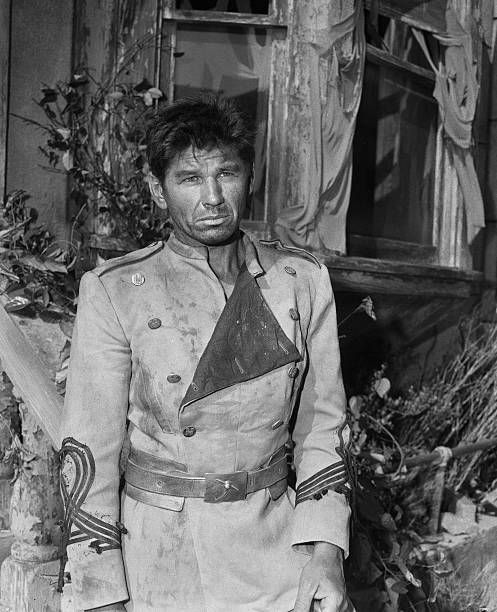
Introduction
Charles Bronson, a name synonymous with tough action and gritty performances, remains an enduring figure in cinema history. With a career that spanned over five decades, Bronson became a cultural icon, known for his rugged persona and memorable roles. His impact on the action genre and representation of masculinity in film is significant, making an exploration of his life and work relevant to both film enthusiasts and casual viewers.
Early Life
Born Charles Dennis Buchinsky on November 3, 1921, in Ehrenfeld, Pennsylvania, he was the 11th of 15 children in a family of Lithuanian descent. Bronson’s early life was marked by poverty; as a teenager, he worked in the coal mines of Pennsylvania. Following his service in the United States Army Air Forces during World War II, he pursued acting, training at the Pritchard School of Drama in California.
Rise to Fame
Bronson’s Hollywood career began in the 1950s, but it was his role in the 1967 film Ride the High Country that garnered attention. His gritty portrayals in films such as Death Wish (1974) solidified his status as a leading action star. Death Wish’s controversial themes ignited discussions around vigilante justice, reflecting societal anxieties during the turbulent 1970s. The film’s success spawned several sequels, further entrenching Bronson’s legacy.
Notable Works
Throughout his career, Bronson worked on numerous films, showcasing his versatility beyond just action roles. In the ’60s and ’70s, he starred in critically acclaimed films like The Great Escape and The Magnificent Seven, further cementing his place in film history. Remarkably, Bronson’s performances carried an emotional weight that resonated with audiences, often portraying ordinary men caught in extraordinary circumstances.
Personal Life and Later Career
Bronson was known for his private nature and steered clear of the Hollywood party scene. He married actress Jill Ireland in 1968, and their partnership was a significant aspect of his life until her death in 1990. In his later years, Bronson continued to take on roles that played to his tough-guy image, but he gradually stepped back from the limelight toward the end of the 1990s.
Conclusion
Charles Bronson passed away on August 30, 2003, but his legacy endures. He transformed the action genre with his unique blend of vulnerability and toughness. His films continue to be celebrated for their exploration of justice and morality. As audiences revisit Bronson’s work, they not only witness his artistic contributions but also the socio-political narratives of the eras in which he starred. Charles Bronson remains a pivotal figure whose work shaped the landscape of modern action cinema.
You may also like

The Importance of Storytelling in Modern Society

Understanding the Fall Season: Change, Beauty, and Tradition

Jay Z: The Evolution of a Music Legend
SEARCH
LAST NEWS
- Remembering Wendy Richard: The Promise to Co-Star Natalie Cassidy
- How Did Anglian Water Achieve an ‘Essentials’ Rating for Mental Health Accessibility?
- Shai Hope Leads West Indies in T20 World Cup Clash Against South Africa
- What We Know About Weston McKennie: Future at Juventus and Past at Leeds
- What We Know About the Upcoming Live Nation Antitrust Trial